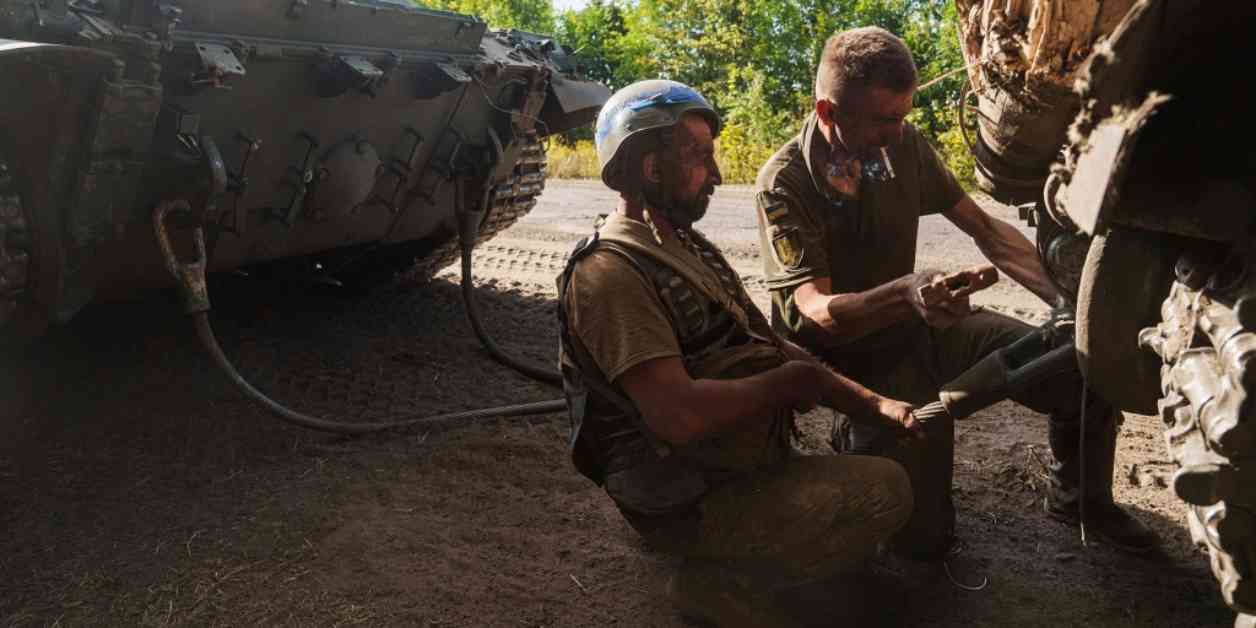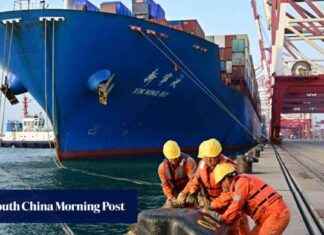Ukraine’s recent military campaign into Russian territory has raised significant challenges and questions about the country’s strategic goals and the implications of its actions. The rapid expansion of Ukrainian control over key Russian settlements has sparked concerns about the long-term sustainability of this territorial acquisition and the potential consequences for both Ukraine and Russia.
The escalation of conflict in eastern Ukraine, particularly in the town of Pokrovsk, where civilians are being urged to evacuate due to the advancing Russian military, highlights the high stakes involved in Ukraine’s territorial expansion. The situation in Pokrovsk mirrors events in southern Russia, where thousands of people have been forced to flee due to the fighting in the neighboring regions of Kursk and Belgorod. The intensification of hostilities in these areas underscores the volatile nature of the conflict and the challenges faced by both Ukrainian and Russian forces.
Despite claims by Kyiv that its incursion into Russian territory is not an occupation but rather a strategic military operation aimed at disrupting Russia’s military infrastructure, concerns remain about the long-term consequences of this action. Ukrainian presidential adviser Mykhailo Podolyak has emphasized that Ukraine’s goals are different from those of Russia and that the temporary control of Russian settlements is necessary to achieve these objectives. However, questions have been raised about the humanitarian considerations for the local population living under Ukrainian control and the potential risks associated with the proximity of the Kursk Nuclear Power Plant to the ongoing conflict.
As the conflict continues to escalate, Ukraine is sending a clear message to the international community that it is challenging Russia’s control over its own territory and undermining President Vladimir Putin’s authority. The Ukrainian government is determined to demonstrate its strength and resilience in the face of Russian aggression, while also seeking to protect its own interests and ensure its security in the region.
Challenges and Risks
The rapid expansion of Ukrainian control over Russian territory presents a number of challenges and risks for both countries. The escalation of conflict in eastern Ukraine and the potential for further destabilization in the region have raised concerns about the impact of the ongoing military campaign on civilian populations and the broader implications for regional security.
The intensification of hostilities in key areas such as Pokrovsk and the Donetsk region has led to growing calls for civilian evacuations and heightened fears of a humanitarian crisis. The Ukrainian government’s assurances that it will provide access to essential supplies and services for the local population under its control are important, but questions remain about the long-term sustainability of this arrangement and the potential risks of prolonged conflict in the region.
The proximity of the Kursk Nuclear Power Plant to the ongoing fighting poses a significant risk of escalation and underscores the need for both Ukrainian and Russian forces to exercise caution and restraint. The potential consequences of any damage to the nuclear facility could be catastrophic, with far-reaching implications for the safety and security of the region as a whole.
Strategic Goals and Objectives
Despite the challenges and risks involved in Ukraine’s expansion into Russian territory, the Ukrainian government remains committed to achieving its strategic goals and objectives in the region. The decision to launch a surprise assault on the Kursk region was a calculated move aimed at diverting Russian resources and attention away from other areas of conflict along the front line.
The strategic importance of the Kursk region and its proximity to key Ukrainian territories in the east make it a valuable target for Ukrainian forces seeking to disrupt Russian military operations and protect their own interests. The successful capture of key Russian settlements in the region, including the border town of Sudzha, demonstrates Ukraine’s determination to challenge Russian control and assert its own authority in the region.
The Ukrainian government’s assertion that it has no plans to occupy the territory and that its incursion is temporary underscores the strategic nature of its military campaign and the importance of achieving its objectives without causing unnecessary harm to the local population. However, the ongoing conflict in the region and the potential for further escalation highlight the complex and volatile nature of the situation on the ground.
International Response and Diplomatic Implications
The international response to Ukraine’s expansion into Russian territory has been mixed, with some countries expressing support for Ukraine’s actions and others raising concerns about the escalation of conflict in the region. The United States has emphasized the need for a peaceful resolution to the conflict and has called on both Ukraine and Russia to exercise restraint and respect international law.
The potential for further escalation and the risk of a wider conflict in the region have raised concerns about the implications of Ukraine’s actions for regional security and stability. The Ukrainian government’s assertion that it will engage in negotiations with Russia on its own terms underscores the importance of diplomatic engagement and dialogue in resolving the conflict and preventing further escalation.
Overall, Ukraine’s expansion into Russian territory has raised significant challenges and questions about the country’s strategic goals and the implications of its actions. The ongoing conflict in key areas such as Pokrovsk and the Donetsk region highlights the high stakes involved in the territorial dispute and the need for a peaceful resolution to the conflict. As the situation continues to evolve, it is clear that the conflict between Ukraine and Russia will have far-reaching implications for the region and the broader international community.



























